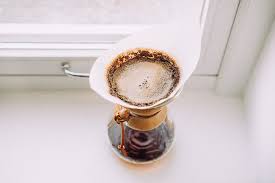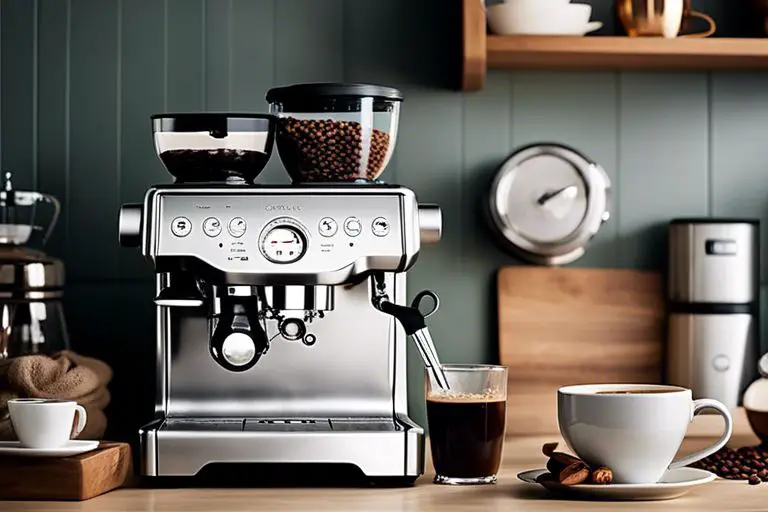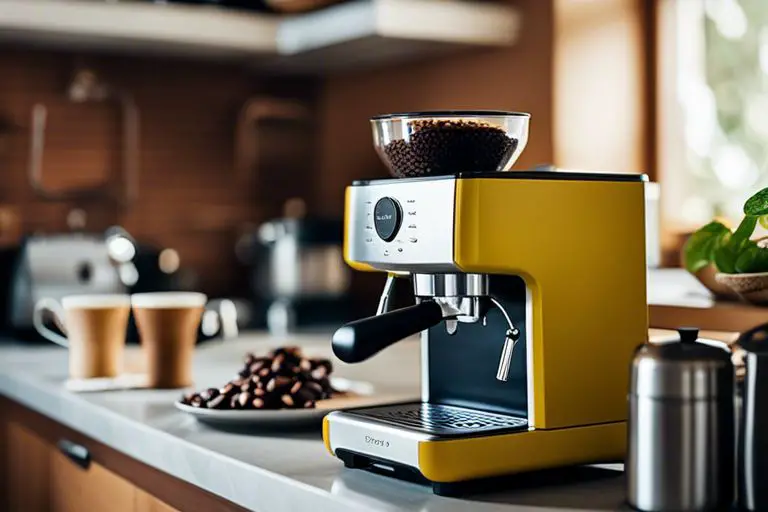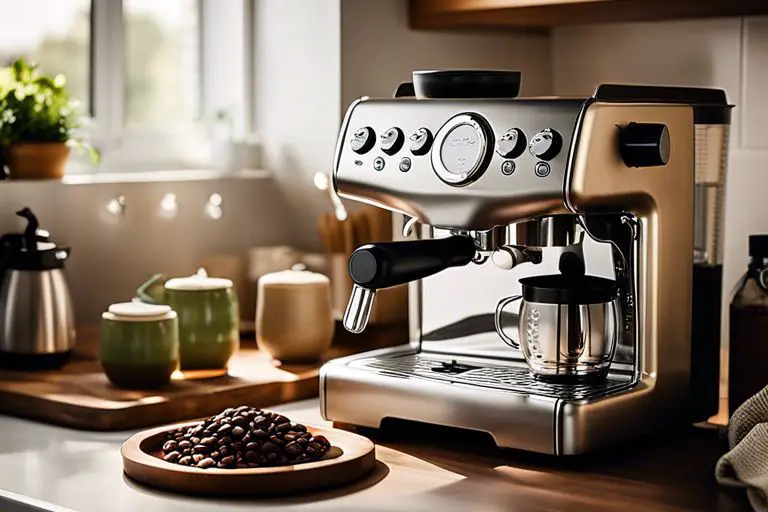Coffee blooming is when you pour water over freshly ground coffee and it creates the appearance of the coffee ballooning, known as the coffee bloom. This occurs because the water making contact with the coffee releases gas present in the coffee. This is known as degassing.
When the water hits the coffee the gas inside the ground coffee has nowhere to go so it first expands within the coffee as it rises to the surface and then bubbles as it breaks through the surface of the water.
Is it important to bloom your coffee as part of the brewing process?
Does the coffee bloom tell you anything about the coffee and does it affect the flavour?
What brewing methods produce a coffee bloom?
Coffee blooming is only relevant to certain types of coffee brewing methods. There are essentially three main types of brewing methods that make up the vast majority of how most people make a cup of coffee.
The first method isn’t really a brewing method because it involves instant coffee but we have included it as sadly lots of people still drink instant coffee on a regular basis. We don’t recommend it because instant coffee has already been brewed once already before being frozen and turned into coffee granules.
Here is a detailed article explaining why instant coffee is a bad idea if you want to enjoy a great tasting cup of coffee:
With instant coffee you simply add water to the coffee granules or powder and then add milk or sugar to taste. With instant coffee there is no coffee bloom because the coffee has already been brewed months before and is effectively second-hand coffee that doesn’t taste very good.
The next method is when water is forced through the coffee at high temperature using an espresso machine to produce a highly concentrated beverage that can be enjoyed on its own as an espresso or with milk added to produce a range of different milk based drinks such as cappuccino or latte.
Here are some articles that explain these brewing methods in more detail:
The final brewing method is the one that creates the coffee bloom and is known as the pour-over method.
There are a number of different coffee machines that you can use for the pour-over method but by far the most popular in the UK are cafetière (French Press as they are also known) and filter coffee machines.
With these methods the coffee mixes together with the water for a relatively long period of time compared to espresso and therefore creates a very different flavour and requires different techniques to get the best possible flavour with coffee blooming being part of that process.
Cafetières are completely manual and is the most cost-effective way to enjoy a great cup of coffee. You add some coffee to the cafetière, then add some water, plunge down and enjoy.
There is a lot more to it than that if you want to get the best out of your coffee and part of that is the blooming process.
To find out more about how to make a great cup of coffee with a cafetière, this article explains how in detail:
How to make coffee in a French press or Cafetiere
The other most popular method for brewing coffee that creates a coffee bloom is by using a filter coffee machine. By just doing a tiny amount of manual work before you let the machine do its thing you can produce the coffee bloom and enhance the flavour of your coffee.
What type of coffee is best for coffee blooming?
The type of coffee you use is not as important as the way that you grind your coffee. When you use a cafetière or filter coffee machine then it’s crucial to grind your coffee coarsely so that the water extracts all of the flavours from the coffee during the brewing process
This article explains exactly how to grind your coffee according to the brewing method you use:
Probably the most important thing to get a great bloom is how fresh your coffee is. The first thing you need to do in order to get the freshest coffee possible is to avoid buying anything except whole coffee beans.
Coffee starts to lose its freshness as soon as the bean is ground so you need to buy whole beans and grind them yourself.
If that sounds a little scary, it needn’t as it’s a very simple process and can also be very affordable if you are just starting out making your own quality coffee.
The best coffee grinders crush the beans instead of chopping them up and these are called burr coffee grinders whereas the other cheaper versions are called blade grinders.
You can start with a blade grinder and a cafetière for as little as £20 and with those two pieces of kit you will be able to make a cup of coffee that is far superior to anything you have ever tasted with instant coffee:
Find out how to choose the right coffee bean grinder in this article:
How do you make coffee bloom?
One of the most interesting things that you can learn from what a coffee bloom looks like is how fresh the coffee is that you are using.
Even if you have ground the whole beans just before brewing unless you know the roasting date of your beans, you won’t know whether they are a few weeks old or a few months old or even longer, until you pour over the water and check out the bloom.
Coffee that has been roasted in the last couple of weeks will retain a lot of the CO2 that gets trapped in the bean during the roasting process and the bean slowly releases the gas over time.
The older the bean, the less gas there will be inside of the coffee grounds when water is poured over them.
Keep an eye on how large the bloom is. A nice ballooned and puffy bloom indicates a fresher coffee and a flat or lifeless bloom can indicate that the beans are old or even worse, stale.
Because bean freshness makes a huge difference to flavour, just by looking at the bloom you will be able to tell how fresh the coffee is.
There are other factors that can affect the bloom such as temperature, type of roast and origin but the most important thing is to use fresh coffee beans that are stored in a dry place at room temperature.
If you have a cafetière then once the coffee has been added, slowly pour around one third of the water you are going to use in total in a swirling motion across all of the ground coffee and you will be able to observe the wonderful bloom forming and the aromas will tantalise your senses.
Leave for around 1 minute and you will see the crust of coffee forming on top. At that point pour the remainder of the water in and stir. leave for 4 minutes to brew, plunge and enjoy.
If you have a filter coffee machine you may be tempted to just add the coffee, hit the start button and let the coffee machine do its thing but if you bloom the coffee manually first then it will enhance the overall flavour because you will be seeping the entire bed of ground coffee with water before brewing.
Some of the cheaper filter coffee machines will just pour water over some of the coffee and that will result in a weaker brew so before you hit the start button pour some water over all of the coffee in a swirling motion until all of the coffee is covered and the bloom has been observed and then you can let the machine take over.
These are the best filter coffee machines
Here is a short video showing coffee blooming in action.




